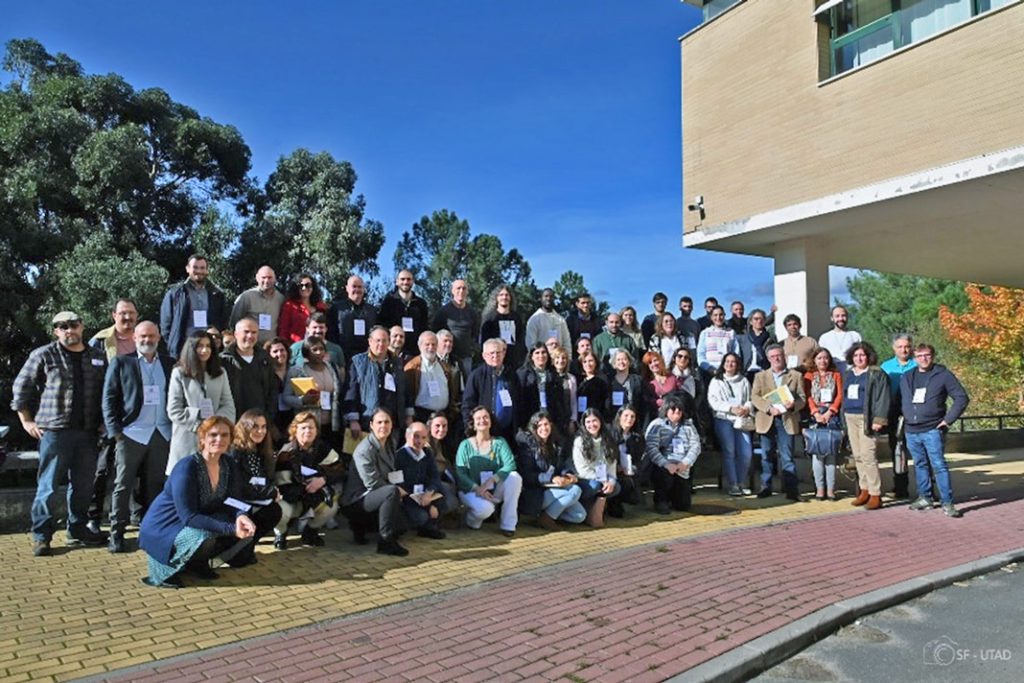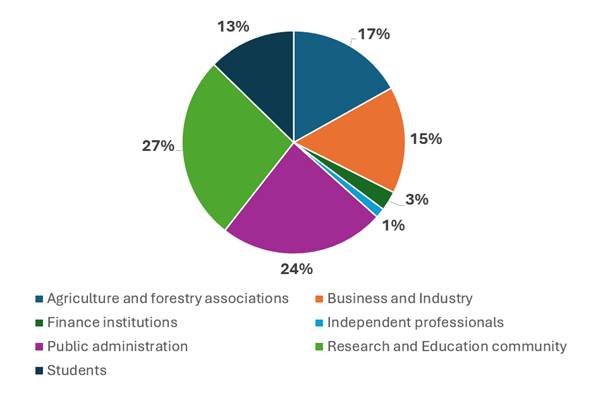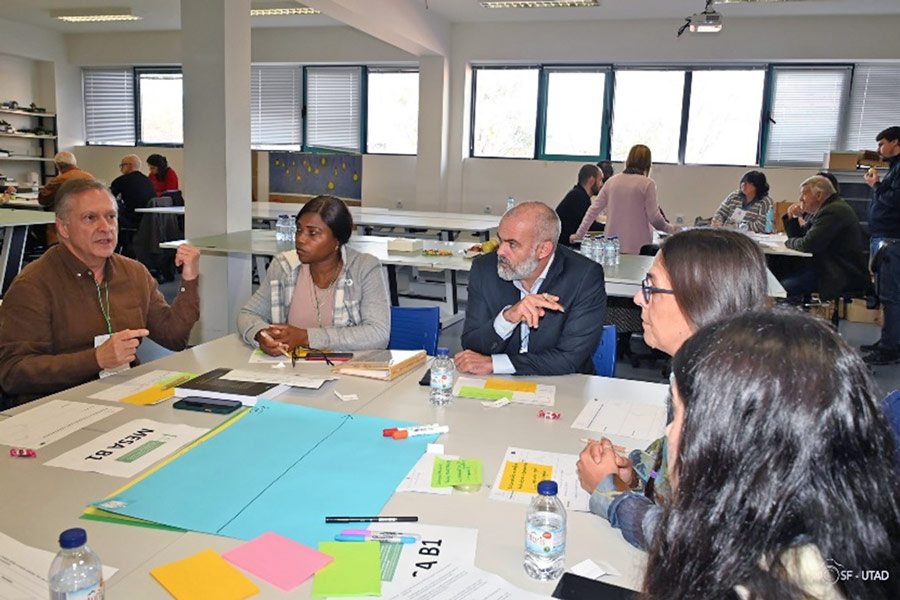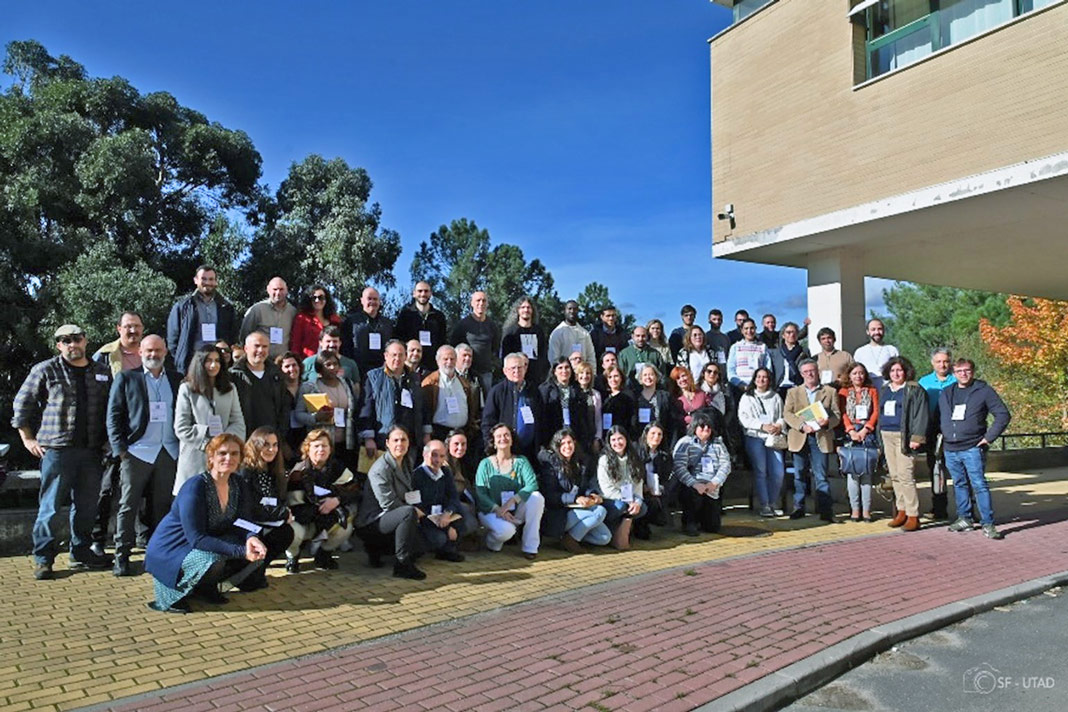
Professionals from the agricultural and forestry sectors responded extensively to the call of the ISA/UTAD scientific research teams in Portugal to share their concerns and experiences, in view of the problems observed in the northern regions of the country.
The European ResAlliance project continues to deploy its tools to improve the socio-economic resilience of the landscape in different countries of the Mediterranean and Southern Europe. On this occasion, the launch of the LandLab in Portugal was the opportunity to address the existing challenges in the northern regions of the country in the field of forestry and agriculture. The event was organised last November in collaboration between the Instituto Superior de Agronomia (ISA) and the Universidade de Trás-os-Montes e Alto Douro (UTAD) in the city of Vila Real and laid the foundations for the co-creation of solutions between different Portuguese experts and stakeholders.
The event was attended by 71 participants linked to the agricultural, agroforestry, and forestry sector. These experts included independent professionals, associations and cooperatives, small and large companies, technicians, financial institutions, and representatives of the Portuguese public administration and political parties (Figure 1). As part of the LandLab launch, an exploratory workshop was held to discuss the changes and solutions for the socio-economic agriculture and forestry sectors, considering the effects of climate change and demographic trends in the region.

Participants were randomly divided into 8 brainstorming tables. They were supported by several members of the event organisers, staff, and other partners who were stationed at each table to ensure the flow of work and gather information. The discussions were structured in two phases: the changes observed over the last decades and the solutions proposed to improve the sectors based on the participants’ experiences (Figure 2). The information and ideas discussed were collected and summarised for presentation and discussion in a plenary session in the afternoon.

The representative speakers from each table were randomly assigned to present the ideas from their brainstorming session. This resulted in people of different ages and positions speaking, including students, technicians, researchers and association managers. The summary of the spoken ideas can be viewed below.
Changes identified
- General abandonment of the sectors, especially in rural areas, due to rural-urban migration and the ageing of the population.
- The increase in monoculture forests focused on production.
- Recurrence of forest fires, which tend to be larger and more devastating.
- Shortage of labour in general, in line with the decline of traditional agricultural business models.
- Very fragmented landscape, with a very high number of landowners with very small plots.
- Observed ecological impacts of climate change: Changes in plant phenology, reduction in productivity, increase in exotic pests and diseases.
Reasons for identified changes
- Lack of a long-term government strategy for agriculture and forestry.
- Agricultural and forestry regulations fall under different ministries.
- Lack of incentives, either to encourage young farmers or to try to keep the sectors viable in the face of declining productivity and rising production costs.
- Lack of proper forest management, which is very difficult to implement due to the highly fragmented landscape.
Examples of solutions identified
- Technologies to improve silvopastoralism.
- Successful case of associativism to improve land management.
- Replacement of forest species with low profitability with autochthonous species expected to be better adapted.
- Certification as a tool to quantify the ecosystem service benefits of good management.
- Success stories of small family enterprises.
The launch of LandLab Portugal ended with the feeling of time well spent, with everyone actively participating in the event. A few weeks later, stakeholders and practitioners voluntarily contacted the organising team to form partnerships to further develop and share solutions for landscape resilience. Indeed, the future is full of challenges for the agriculture and forestry sectors, but it is certainly bright when one sees the willingness to come together and share solutions for their communities. The ResAlliance project will continue to thrive as a platform to promote and share good practices.
This article was originally written by:
The Forest Research Centre (CEF) of Instituto Superior de Agronomia (ISA)
The post When professionals’ experience matters: the launch of ResAlliance Landlab in Portugal appeared first on Resilience Blog.
